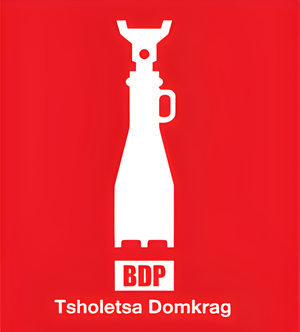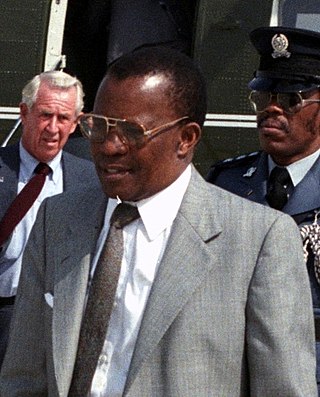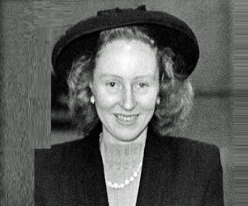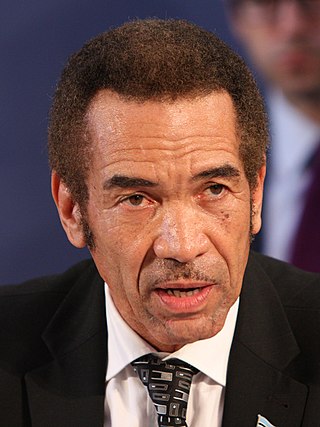Related Research Articles
The history of Botswana encompasses the region's ancient and tribal history, its colonisation as the Bechuanaland Protectorate, and the present-day Republic of Botswana. The first modern humans to inhabit Botswana were the San people, and agriculture first developed approximately 2,300 years ago. The first Bantu peoples arrived c. 200 CE, and the first Tswana people arrived about 200 years later. The Tswana people split into various tribes over the following thousand years as migrations within the region continued, culminating in the Difaqane in the late 18th century. European contact first occurred in 1816, which led to the Christianization of the region.

Botswana is a parliamentary republic in which the President of Botswana is both head of state and head of government. The nation's politics are based heavily on British parliamentary politics and on traditional Batswana chiefdom. The legislature is made up of the unicameral National Assembly and the advisory body of tribal chiefs, the Ntlo ya Dikgosi. The National Assembly chooses the president, but once in office the president has significant authority over the legislature with only limited separation of powers. The Botswana Democratic Party (BDP) rules as a dominant party; while elections are considered free and fair by observers, the BDP has controlled the National Assembly since independence. Political opposition often exists between factions in the BDP rather than through separate parties, though several opposition parties exist and regularly hold a small number of seats in the National Assembly.

Khama III, referred to by missionaries as Khama the Good also called Khama the Great, was the Kgosi of the Bangwato people.

The Botswana Democratic Party is the governing party in Botswana. Its chairman is the Vice-President of Botswana, Slumber Tsogwane, and its symbol is a lift jack. The party has ruled Botswana continuously since gaining independence from the United Kingdom in 1966. The BDP is sometimes classified as a paternalistic conservative party and is also a consultative member of the Socialist International since 2014, which is a group including many worldwide social-democratic parties.

Ketumile Quett Joni Masire, GCMG, was the second and longest-serving president of Botswana, in office from 1980 to 1998. He was given an honorary knighthood of the Grand Cross of Saint Michael and Saint George by Queen Elizabeth II (GCMG) in 1991.

Sir Seretse Goitsebeng Maphiri Khama, GCB, KBE was a Botswana politician who served as the first President of Botswana, a post he held from 1966 to his death in 1980.

The Bechuanaland Protectorate was a protectorate established on 31 March 1885 in Southern Africa by the United Kingdom. It became the Republic of Botswana on 30 September 1966.

The Botswana People's Party (BPP), originally the Bechuanaland People's Party, is a political party in Botswana formed in December 1960 during the colonial era. As a result of disappointment with the Legislative Council, under the leadership of Kgalemang T. Motsete, an accomplished music composer and educationist, BPP became the first mass party to agitate for full independence.

Ruth Williams Khama, Lady Khama was the wife of Botswana's first president Sir Seretse Khama, the Paramount Chief of its Bamangwato tribe. She served as the inaugural First Lady of Botswana from 1966 to 1980.
The Tati Concession was a land and mining concession created in the western borderlands of the Matabele Kingdom. The concession was originally granted by the Matabele King, Lobengula, son of Mzilikazi, to Sir John Swinburne in exchange for gold and arms. It was administered by the territory known as the Bechuanaland Protectorate after 1893, but was formally annexed to it by Proclamation Number 2 of 1911 by the High Commissioner of Bechuanaland. It was locally administered by a Justice of the Peace.

Seretse Khama Ian Khama is a Botswana politician and former military officer who was the fourth President of the Republic of Botswana from 1 April 2008 to 1 April 2018. After serving as Commander of the Botswana Defence Force, he entered politics and was Vice-President of Botswana from 1998 to 2008, then succeeded Festus Mogae as President on 1 April 2008. He won a full term in the 2009 election and was re-elected in October 2014.

Leruo Tshekedi Molotlegi is the 36th kgosi, or king, of the Royal Bafokeng Nation. The Bafokeng nation is located in North West Province of the Republic of South Africa.
The history of Gaborone began with archaeological evidence in the area around Gaborone dating back to 400 BCE, and the first written accounts of Gaborone are from the earliest European settlers in the 19th century. Since the 1960s, when Botswana gained its independence from Britain and Gaborone became the capital, the city has grown from a small village in the Botswana scrubland to a major center in southern Africa.
The Presidential Commission of Inquiry into Sections 77, 78 and 79 of the Constitution of Botswana, also known as the Balopi Commission after the chairman of the commission Patrick Balopi, is a Botswana commission of inquiry set up on 28 July 2000 in response to perceived tribal inequality between the dominant Batswana and the smaller minority tribes such as the Wayeyi.
The Independence Day of Botswana, commonly called Boipuso, is a national holiday observed in Botswana on September 30 of every year. The date celebrates Botswana's Declaration of Independence from the United Kingdom on September 30, 1966.

Bathoen Seepapitso Gaseitsiwe also known as Bathoen II was a Motswana Kgosi, jurist and politician who served as Chief of the Bangwaketse from 1928 to 1969. He served as Chairman of the Botswana National Front (BNF) from 1966 to 1985, Leader of the Opposition from 1969 to 1984 and President of the Court of Appeal from 1985 until his death in 1990. He represented the Kanye South constituency in the National Assembly for three consecutive terms. As the leader of the BNF, the then second largest political party in the country, he was the main opponent of the Botswana Democratic Party (BDP) government, led by Seretse Khama and Quett Masire, during the first two decades of the African country's independence.
The History of Botswana includes its pre-state history, its colonial period as the Bechuanaland Protectorate, and its modern history as a sovereign state.
The following lists events that happened during the 1970s in Botswana.
The following lists events that happened during the 1980s in Botswana.
Neale Molaodi Sechele (1915–1985) was kgosi of the Bakwena. He was appointed to the position by the court in 1963 following the death of his brother Kgari Sechele II, and he was forced to abdicate in 1970. As Neale was appointed against the wishes of the people and he often neglected his responsibilities, he was regarded poorly by the Bakwena.
References
- ↑ Dani Rodrik (2003). In search of prosperity: analytic narratives on economic growth. Princeton University Press. pp. 97–98. ISBN 978-0-691-09269-0 . Retrieved 9 May 2013.
- ↑ Mwakikagile, Godfrey (2009). Botswana Since Independence. New Africa Press. p. 20. ISBN 978-0-9802587-8-3.
- 1 2 3 4 5 6 7 8 9 10 11 12 13 14 15 Morton, Barry; Ramsay, Jeff (2018). Historical Dictionary of Botswana (5th ed.). Rowman & Littlefield. pp. xxxiii–xxxiv. ISBN 978-1-5381-1133-8.
- ↑ Leith, J. Clark (2005). Why Botswana Prospered . McGill-Queen's Press - MQUP. pp. 32–33. doi:10.1515/9780773572416. ISBN 978-0-7735-7241-6.